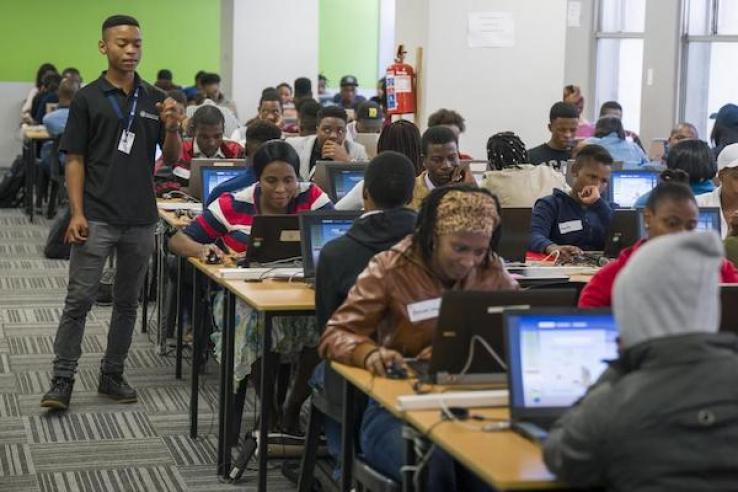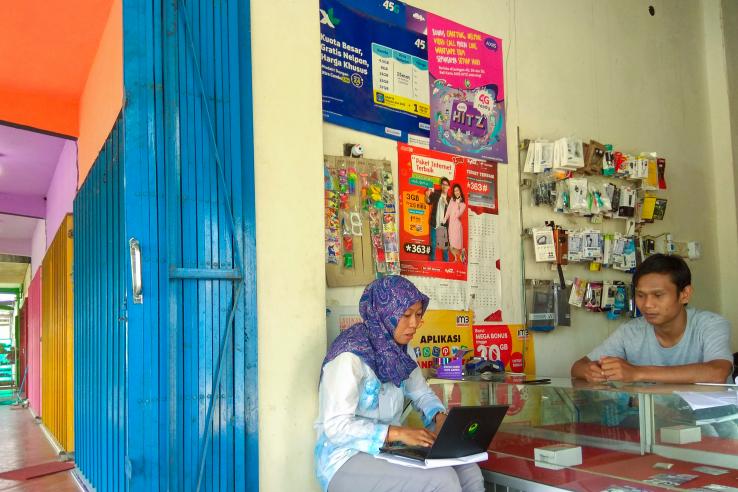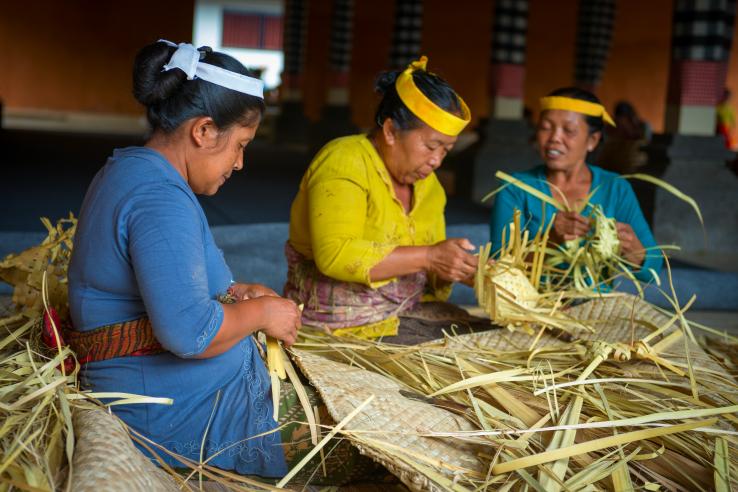Displaying 721 - 735 of 8062
Update
J-PAL updates
REC Limited (formerly Rural Electrification Corporation Limited), a public infrastructure finance company under the Ministry of Power, Government of India, and J-PAL South Asia are partnering to create an annual, data-based assessment of 79 public and private power distribution companies across the...
Blog
Read how J-PAL Africa and the Harambee Youth Employment Accelerator have partnered over the last three years to design, test, and scale job search tools to address South Africa's youth unemployment problem.
Blog
GEA has completed its second full funding round, supporting nineteen research teams to produce evidence that addresses critical knowledge gaps on what works to support women’s economic agency. Read about the funded projects.
Update
J-PAL updates
In the November 2021 Newsletter, we highlight ideas around how climate finance can support evidence generation, three key lessons on informing policy with evidence in Africa, and evidence for medical debt relief.
Resource
Basic page
Blog
In the second installment of the IFII blog series, we discuss the importance of applying a gender lens to measuring impact and share practical considerations for measuring empowerment.
Evaluation
Researchers evaluated the impact of financial incentives, public health video messages, and access to a vaccine scheduling link on Covid-19 vaccination intentions and vaccine take-up in the United States. None of the interventions led to increases in vaccine take-up after thirty days. In a subsequent study, researchers found that personal reminder messages led to increases in booster vaccination rates while monetary incentives had no additional impact.
Evaluation
By running a Facebook public health campaign, researchers found that social media messaging from doctors and nurses reduced holiday travel and subsequent Covid-19 infection rates. This suggests that social media campaigns may be an impactful and cost-effective way to slow the spread of Covid-19 and enact behavior change.
Evaluation
Diarrhea is a leading cause of death in children under the age of 5, but adding small amounts of chlorine into water can treat water and prevent a large number of these deaths. Providing free dispensers for chlorine to treat water reduced under-five mortality. Children living in villages with dilute chlorine solution dispensers were 63 percent less likely to die relative to the comparison group.
Blog
James Turitto ‘20 (former senior research manager at J-PAL Global) details his mission to document methane emissions in Europe and lobby policymakers to strengthen regulations. He reflects on the critical role of measuring and exposing industrial methane leaks and how skills learned at J-PAL help...
Resource
Basic page
At J-PAL Southeast Asia, J-PAL affiliated researchers collaborate with government agencies, private firms, NGOs, and other development partners to answer pressing policy questions in various sectors.
Resource
Basic page
J-PAL Southeast Asia (SEA) is a regional office of the Abdul Latif Jameel Poverty Action Lab (J-PAL), a global network of researchers who use randomized evaluations to answer critical policy questions in the fight against poverty.
Update
J-PAL updates
In the September 2021 Newsletter, we highlight studies regarding various strategies to combat Covid-19, an introduction to some of our new affiliates, and takeaways from the IPCC's report on climate change.
Evaluation
Identifying high-potential microentrepreneurs in low-income countries remains a challenge due to lack of verifiable information. Researchers conducted a randomized evaluation to test the value of community knowledge in identifying high-potential microentrepreneurs.










